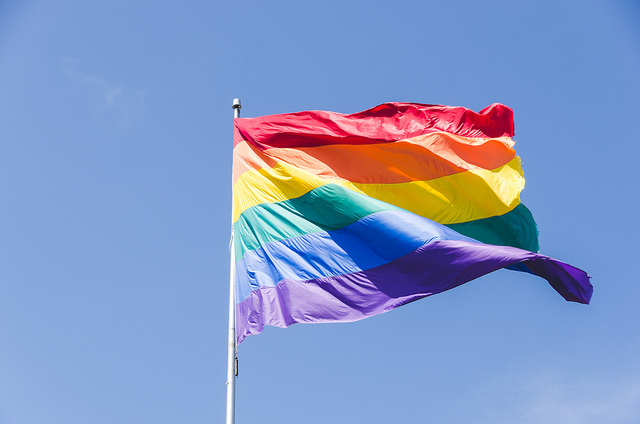In case you thought the issue of marriage equality was settled—like Donald Trump did—let this be a reminder that the fight is ongoing, despite the U.S. Supreme Court’s landmark decision in Obergefell v. Hodges. In a true feat of mental gymnastics, the Texas Supreme Court has just unanimously ruled that same-sex spouses of government employees should not receive the same spousal benefits as opposite-sex married couples.
No, that does not make any sense. The Obergefell v. Hodges decision was clear in no uncertain terms that same-sex couples have the right to get married. To turn around and deny spousal benefits on the basis of gender is quite simply discrimination. There are not two separate types of marriage. The marriage that same-sex couples are entitled to is the same marriage as opposite-sex couples according to the Supreme Court of the United States, and trying to set up separate tiers of marriage is a transparent attempt to subvert that decision.
In Texas, a law had originally banned same-sex couples from receiving spousal benefits from government jobs when marriage equality was limited to only a few states. Former Houston Mayor Annise Parker later ordered the law not to be enforced in the city, which is what led to the state’s Supreme Court ruling on the matter now in Pidgeon v. Turner, “under pressure from top Texas Republicans,” according to KUT:
“Gov. Greg Abbott, Lt. Gov. Dan Patrick and Texas Attorney General Ken Paxton filed an amicus brief in October asking the all-Republican court to reconsider. They also asked the court to clarify that the U.S. Supreme Court case legalizing same-sex marriage, Obergefell v. Hodges, does not ‘bind state courts to resolve all other claims in favor of the right to same-sex marriage.'”
But here’s the thing: Even if a SCOTUS ruling doesn’t “bind” their resolutions, logic is kind of supposed to. That’s the whole point of courts, but this one has decided that, rather than follow the logical conclusion that all marriages are to be treated the same, they should set up artificial, discriminatory differences. SCOTUS has even specifically addressed that issue literally on Monday, ruling that “disparate treatment” of marriages was unacceptable (Trump-appointed Gorsuch dissented, by the way), though Obergefell v. Hodges had already affirmed the right to same-sex marriage “on the same terms and conditions as opposite-sex couples.”
For now, they’re getting away with it, and that’s what’s scary about the position that the issue has been “settled.” Hopefully, this decision will eventually be overturned. This is why we can’t accept people just being ambivalent towards marriage equality—or other issues that have been settled by the Supreme Court but are still contentious. Getting the initial Supreme Court ruling was a big win, but that doesn’t mean the fight is over. It’s just a switch from fighting to have a right affirmed to keeping it that way.
(via NPR, image: Jaime Pérez on Flickr)
Want more stories like this? Become a subscriber and support the site!
—The Mary Sue has a strict comment policy that forbids, but is not limited to, personal insults toward anyone, hate speech, and trolling.—









Published: Jun 30, 2017 04:35 pm